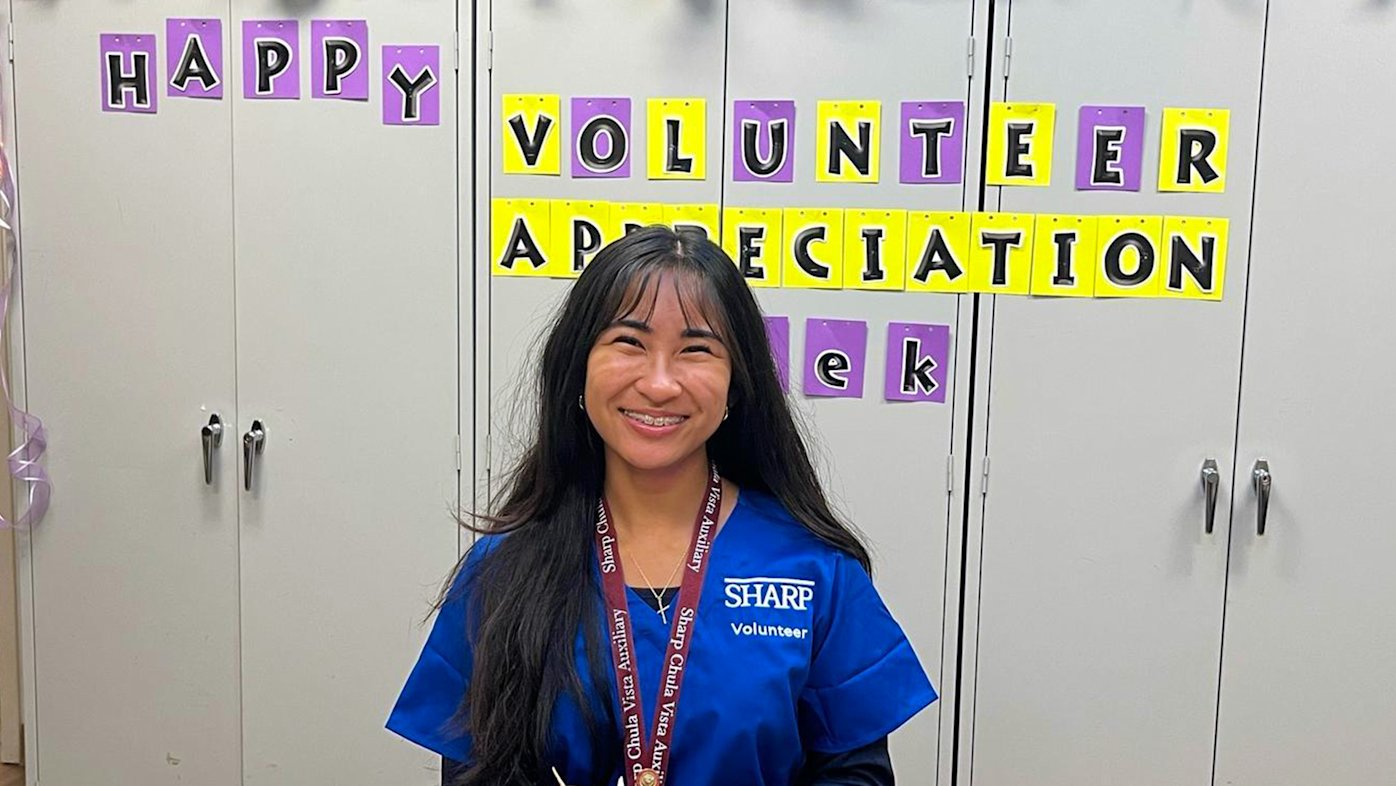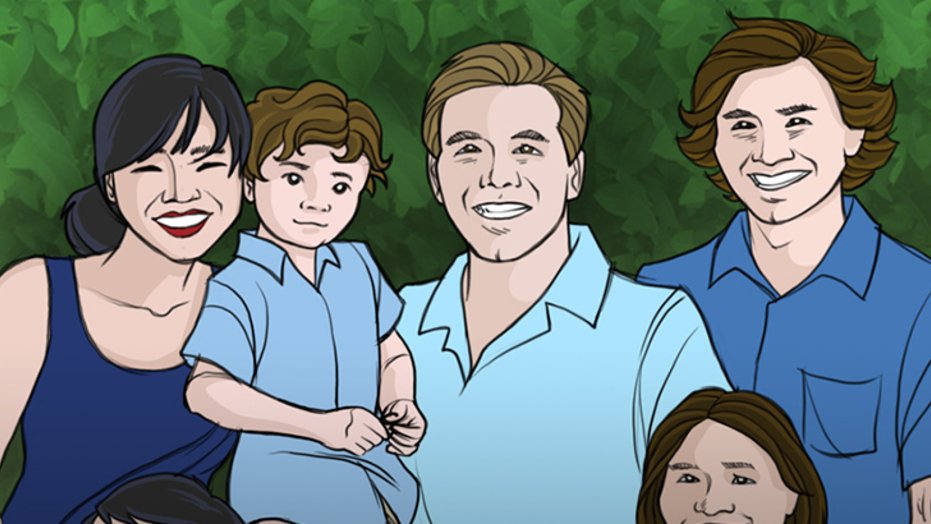
Student volunteer brings joy with wishing cranes
Carefully folded origami cranes carry messages of hope and healing, as one teen volunteer helps brighten patients’ days at Sharp Chula Vista Medical Center.
As a teenager, Sophia Epley knows about a lot of things that most teenagers do. She also knows a lot about cancer.
That's because her mom and dad were treated for it at almost the exact same time. The Chula Vista family's world turned upside down when her mom was diagnosed with stage 0 in situ breast cancer in November 2015.
Then, just six months later, Sophia's dad learned he had stage 3 throat cancer.
"Mom and Dad have cancer, but we're lucky because we caught it early," is what Mel Epley and his wife told Sophia, her younger brother, Vincent, 11, and her older brother, Melvin, a student at the University of Hawaii.
Mel distinctly remembers receiving his diagnosis. The family had been on vacation when he noticed that the lymph nodes in his neck felt unusual. Realizing he was about the same age as his father and grandfather when they learned they had cancer, he saw a doctor, who confirmed it.
"I was in disbelief," Mel remembers. "I thought, 'No way can this be real.' People tell you how something like this is going to be, but it ends up being so much more."
Soon after his wife's mastectomy, Mel began treatment at
Sharp Chula Vista Medical Center, which included chemotherapy, radiation and a series of surgeries. Treatment took a toll, and the couple took turns supporting each other through it. Support came from all over — friends, family and their employers; at both of their jobs, they found support and flexibility to deal with their diagnoses.
Both parents having cancer was hard on Sophia and her younger brother. There were countless doctor appointments, and Mel remembers missing sports games and school events when treatment made him weak — something that was hard for his kids to see.
"They saw everything — my wife with drains in her chest from her mastectomy, me with a feeding tube," Mel says. "It was Vincent's birthday and I could barely say 'happy birthday' after all the treatment on my throat. To struggle to wish my son a happy birthday, that was a hard moment for our family."

The Epley family faced cancer together when both parents were diagnosed just months apart. This illustration of the family appears in daughter Sophia's guide.
Still, the experience yielded something positive for Sophia: a passion to help kids like herself. Sophia wrote a guide that gives kids tips for dealing with parents who have cancer — lessons she learned through her own experience.
Her guide includes sections such as, "Our parents still love us even if they cannot always express it," and "It's OK to have a lot of emotions right now."
"Even though we're the parents, Sophia has taught us a lot," the Epleys say. "We've learned that even though our children may be little and quiet, they're strong and they feel deep things."
"Cancer took a toll on my whole family," Sophia says. "I would encourage kids to find someone they can talk to about their feelings and reach out for help if they need it. I would explain that our parents may not be at their best and may be unable to take care of us when they are sick, but they still love us."
Now, Sophia’s guide — available in both English and Spanish — is given to Barnhart Cancer Center patients with children. In December 2017, Sophia and her brothers received difficult news: Their mom’s cancer returned, this time in the other breast. Despite being a busy ninth-grader, Sophia is more inspired than ever; she’s thinking about creating a support group, which would include a social media component, where kids can connect to share experiences. She’s also gathering Christmas gifts to give to families who are also facing cancer.
This story was updated in December 2017.
Our weekly email brings you the latest health tips, recipes and stories.